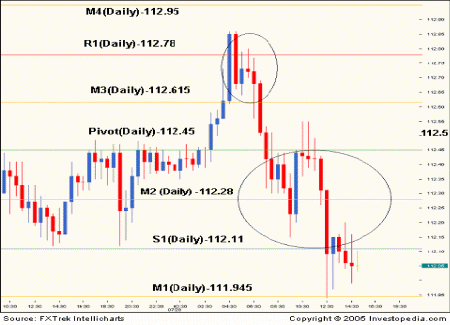Resistance Definition. Resistance is a term used in technical analysis to describe a price level in a stock, commodity or currency where selling pressure for the asset exceeds the momentary buying pressure, forming a ceiling that blocks future price movements in the upward direction. The opposite of resistance is Support. Similarly, it is the level where buying pressure begins to exceed selling pressure, thereby establishing a floor beneath which prices will not fall. Technical analysts have developed many tools to ascertain these levels since they signal appropriate entry and exit points that a forex trader will use to his advantage. Many forex traders rely on various wave theories that project these levels at varying points on a pricing chart of the currency. Proponents of Elliott Wave Theory use proportional retracement ratios, sometimes based on Fibonacci intervals, to determine consistent projections for both resistance and support. The wise forex trader then places orders based on these price forecasts to profit from these expectations. Software has been developed that performs the necessary calculations. Typically, resistance, support, pivot points and midpoints are displayed (abbreviations are R, S, P, and M), as in the following example:

Forextraders' Broker of the Month
BlackBull Markets is a reliable and well-respected trading platform that provides its customers with high-quality access to a wide range of asset groups. The broker is headquartered in New Zealand which explains why it has flown under the radar for a few years but it is a great broker that is now building a global following. The BlackBull Markets site is intuitive and easy to use, making it an ideal choice for beginners.
